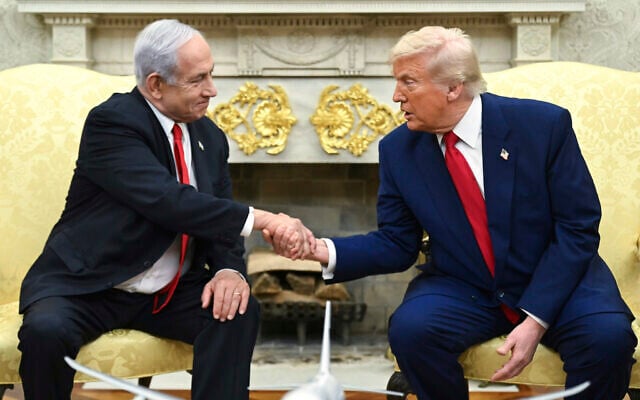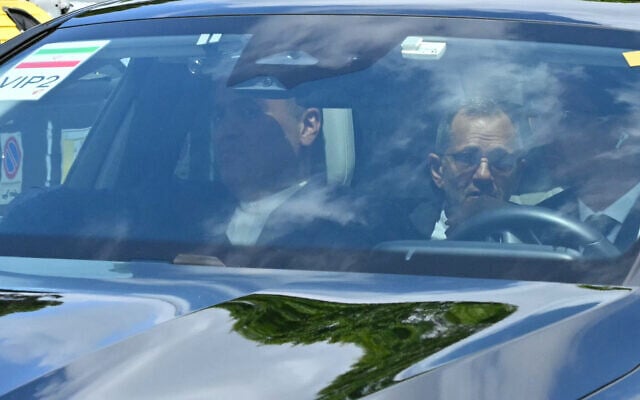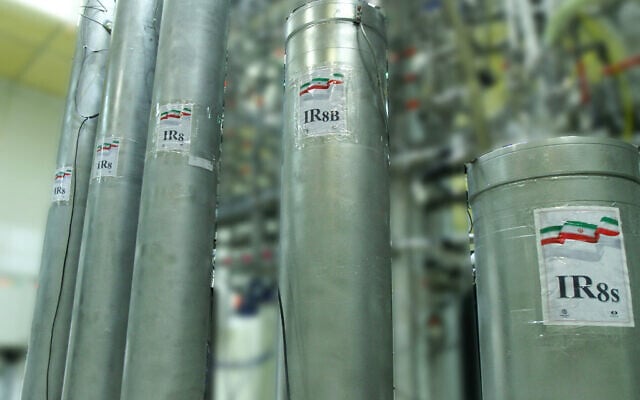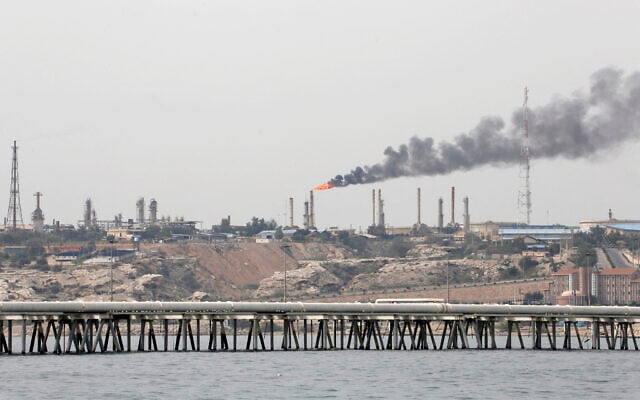


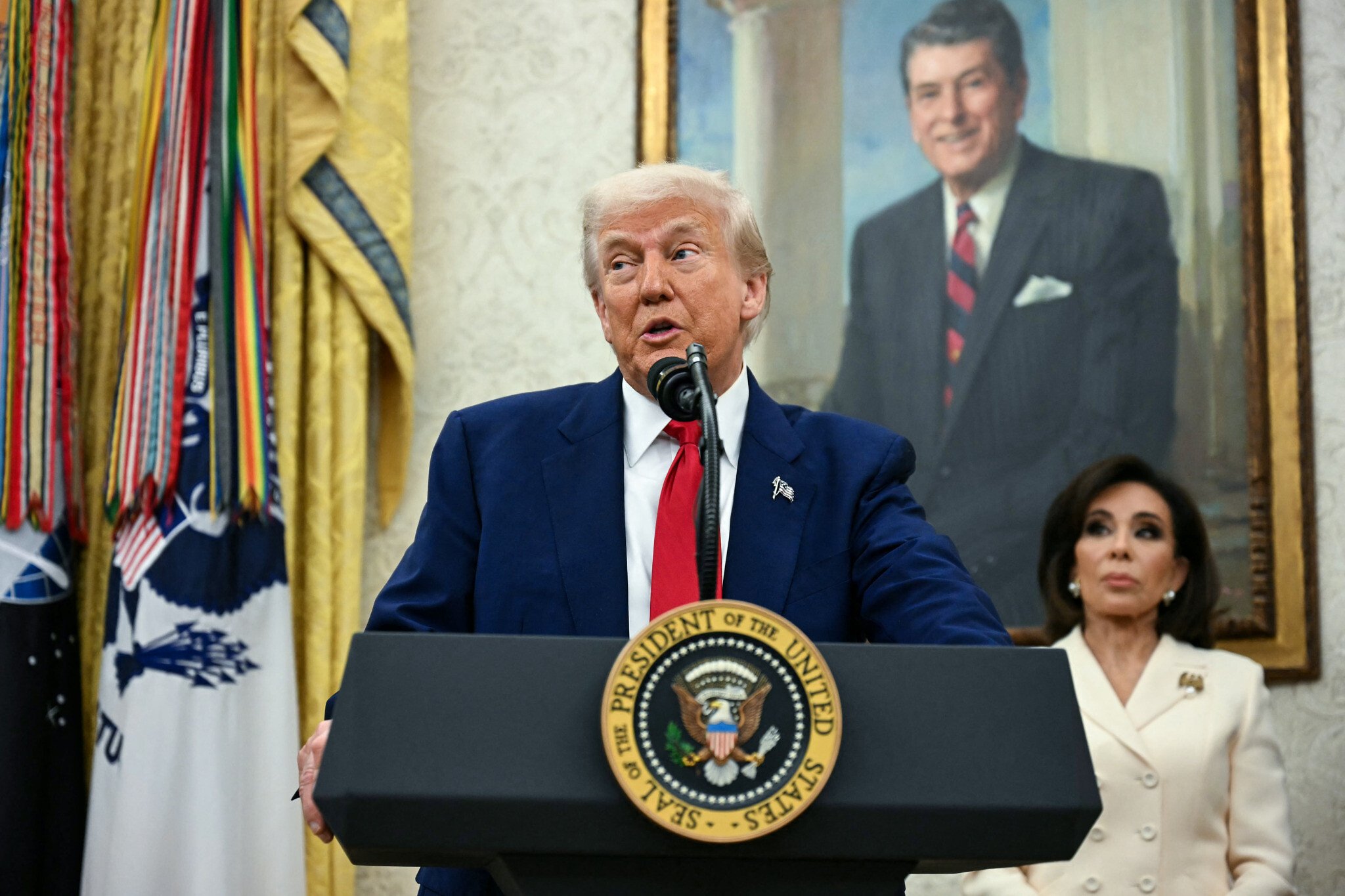
WASHINGTON — US President Donald Trump confirmed on Wednesday that he had asked Prime Minister Benjamin Netanyahu during a call last week not to take military action against Iran that could disrupt Washington’s ongoing nuclear negotiations with the Islamic Republic.
Trump’s statement came after The New York Times reported details from the call, while stating that US officials were concerned that Israel may seek to carry out strikes on Iran’s nuclear program without much warning, which would leave the Americans little time to attempt to pressure Netanyahu to change his mind.
Asked by reporters in the Oval Office if he had told Netanyahu not to target Iran, Trump said: “Well, I’d like to be honest. Yes, I did… I told [Netanyahu] this would be very inappropriate to do right now because we’re very close to a solution.”
He added: “That could change at any moment. It could change with a phone call. But right now, I think [Iran] wants to make a deal, and if we can make a deal, [that would] save a lot of lives.”
“We’re having very good discussions with [Iran], and I said [to Netanyahu], ‘I don’t think that’s appropriate right now.’ Because if we can settle it with a very strong document — with inspections and [not based on] trust,” he continued. “I want [the deal to be] very strong where we can go in with inspectors, we can take whatever we want. We can blow up whatever we want, but [with] nobody getting killed.”
“I think we’re going to see something very sensible,” Trump said, reiterating that there are two outcomes possible in the ongoing negotiations — one that is “violent,” which the US would rather avoid, and the second being a deal.
People will “be surprised [at] what’s happening there,” Trump added.
Iran, which avowedly seeks Israel’s destruction, has consistently denied seeking to acquire nuclear weapons. However, it has been enriching uranium to levels that have no peaceful application, has obstructed international inspectors from checking its nuclear facilities and expanded its ballistic missile capabilities, while several officials have increasingly warned that they could pursue the bomb.
Negotiations are currently at loggerheads over the issue of uranium enrichment, with US officials insisting on its total elimination in Iran, while the Islamic Republic has called it a red line.
Two Iranian official sources told Reuters Wednesday that the country may agree to pause uranium enrichment if the US releases frozen Iranian funds and recognizes Tehran’s right to refine uranium for civilian use under a “political deal” that could lead to a broader nuclear accord.
The sources, close to the negotiating team, said a “political understanding with the United States could be reached soon” if Washington accepted Tehran’s conditions. One of the sources said the matter “has not been discussed yet” during the talks with the United States.
The sources told Reuters that under this arrangement, Tehran would halt uranium enrichment for a year, ship part of its highly enriched stock abroad, or convert it into fuel plates for civilian nuclear purposes.
In Washington, a US official told Reuters the proposal aired by the Iranian sources had not been brought to the negotiating table to date. The US State Department and Iran’s foreign ministry did not immediately respond to requests for comment.
The Iranian sources said Tehran would not agree to the dismantling of its nuclear program or infrastructure or the sealing of its nuclear installations, as demanded by Trump’s administration.
Instead, they said, Trump must publicly recognize Iran’s sovereign right to enrichment as a member of the nuclear Non-Proliferation Treaty and authorize a release of Iranian oil revenues frozen by sanctions, including $6 billion in Qatar.
Iran has not yet been able to access the $6 billion parked in a Qatar bank that was unfrozen under a US-Iranian prisoner swap in 2023, during US president Joe Biden’s administration.
“Tehran wants its funds to be transferred to Iran with no conditions or limitations. If that means lifting some sanctions, then it should be done too,” the second source said.
The sources said the political agreement would give nuclear diplomacy a greater chance to yield results by providing more time to hammer out a consensus on hard-to-bridge issues needed for a permanent treaty.
“The idea is not to reach an interim deal, it would be a political agreement to show both sides are seeking to defuse tensions,” said the second Iranian source.
Western diplomats are skeptical of the chances for US-Iranian reconciliation on enrichment. They warn that a temporary political agreement would face resistance from European powers unless Iran displayed a serious commitment to scaling back its nuclear activity with verification by the UN nuclear watchdog.
Israel is also believed to be suspicious of any interim deal that would allow Iran to maintain its facilities for months or years with the negotiations ongoing.
Even if gaps over enrichment narrow, lifting sanctions quickly would remain difficult. The US favors phasing out nuclear-related sanctions, while Iran demands immediate removal of all US-imposed curbs that impair its oil-based economy.
Asked whether critical US sanctions, reimposed since 2018 when Trump withdrew Washington from the 2015 pact, could be rescinded during an enrichment pause, the first source said: “There have been discussions over how to lift the sanctions during the five rounds of talks.”
Dozens of Iranian institutions vital to Iran’s economy, including its central bank and national oil company, have been sanctioned since 2018 for “supporting terrorism or weapons proliferation,” according to Washington.
Iran’s clerical establishment is grappling with mounting crises — energy and water shortages, a plunge in the value of its currency, losses among regional terror proxies in wars with Israel, and growing fears of an Israeli strike on its nuclear sites — all exacerbated by Trump’s hardline stance.
Trump’s revival of a “maximum pressure” campaign against Tehran since he re-entered the White House in January has included tightened sanctions and threats to bomb Iran if current negotiations yield no deal.
Iranian officials told Reuters last week that Tehran’s leadership “has no better option” than a new deal to avert economic chaos at home that could jeopardize clerical rule.
Nationwide protests over social repression and economic hardship in recent years were met with harsh crackdowns, but exposed the Islamic Republic’s vulnerability to public discontent and drew more Western sanctions over human rights violations.

